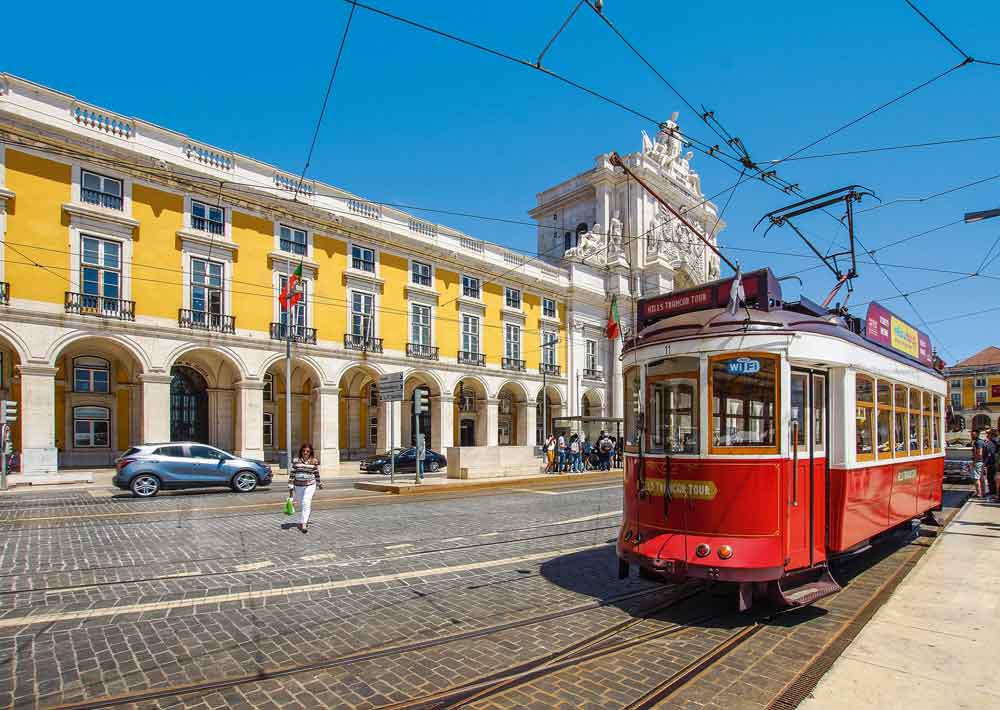The benefits of travelling are infinite. From increasing cultural understanding to supporting the economies of third-world countries, there’s no denying that the travel boom of the last two decades has had a positive impact on the world.
However, the increase in plane travel and overcrowding of tourist hotspots has undoubtedly had a negative impact on the environment too. Shockingly, plane travel is one of the leading causes of climate change, with one return flight from London to Montreal in Canada emitting as many carbon emissions as heating a home in Europe for an entire year!
If you’re looking to reduce your carbon footprint, but still want to see the world, don’t lose hope. There are lots of ways to make your trips more sustainable – whether that’s by choosing the right destinations, seeking out eco-experiences or choosing greener modes of transport. Here are a few tips and tricks to consider before booking your next trip away.
Choose a destination closer to home
You don’t have to travel to the other side of the world to have an unforgettable holiday. There are plenty of awe-inspiring destinations sitting right on your doorstep here in the UK, or just a short plane or train journey away.
With the pandemic putting a halt to foreign travel for over a year, many of us will be more accustomed to holidaying in the UK. However, if you have set your sights on somewhere far-flung, reduce your carbon footprint by taking one longer holiday per year instead of multiple shorter trips.
Use efficient modes of transportation
Too often, we choose the easiest option when it comes to travelling, instead of thinking about the journey itself as an experience worth treasuring.
Air travel tends to be the easiest but least efficient mode of transportation. When visiting destinations that are close to home – such as cities in Western Europe, for example – why not consider travelling by train or coach? You’ll cut your emissions, while soaking up the scenery along the way. Once you’ve arrived at your destination, avoid renting a car and travel by bus, rail or bike instead. If you do rent a car, go for an electric, hybrid or smaller model.
Take the road less travelled
Nowadays, more and more destinations are becoming victims of a phenomenon known as ‘overtourism’. In short, overtourism occurs when there are too many visitors at a particular destination, resulting in locals being pushed out, damage to the area and more. Amsterdam, Venice and Barcelona are just a few cities that have experienced overtourism, but beaches, national parks and sometimes entire countries can also fall prey.
While it’s tempting to visit the bucket-list destinations you see on social media, as a tourist you can make a difference by getting off the beaten path. The reality is that many tourist hotspots don’t live up to their expectations – you’ll likely have to spend hours standing in line with other eager holidaymakers, only to discover that the destination doesn’t look the same in reality as it did online.
For your next trip, do some extra research and look beyond the top destinations and attractions in the area you’re staying. You could also ask locals or other travellers for recommendations. By visiting smaller cities or rural areas, you’ll be spreading the benefits of tourism to more remote communities!
Seek out local and sustainable experiences
While you’re enjoying your holiday, take advantage of every opportunity to give back to the local community. Buying gifts for your family and friends? Snap up locally made souvenirs at smaller independent stores. Fancy a meal out? Avoid big hotel chains and find restaurants and eateries that are run by local residents.
Homestays, local guides and programmes that give back to the community are also good ways to ensure your money is injected back into the local economy.
Pack like a pro
Plastic waste might not be a huge issue in the western world yet, but developing countries such as Cambodia and Vietnam have been suffering from uncontrollable plastic rubbish in oceans, waterways and beaches for years.
You can avoid single-use plastics on your travels by packing reusables like a water bottle, coffee cup, steel or bamboo straw, collapsible food container and bamboo cutlery. By doing so, you’ll reduce your waste output and have a smaller impact on the country you’re visiting.







